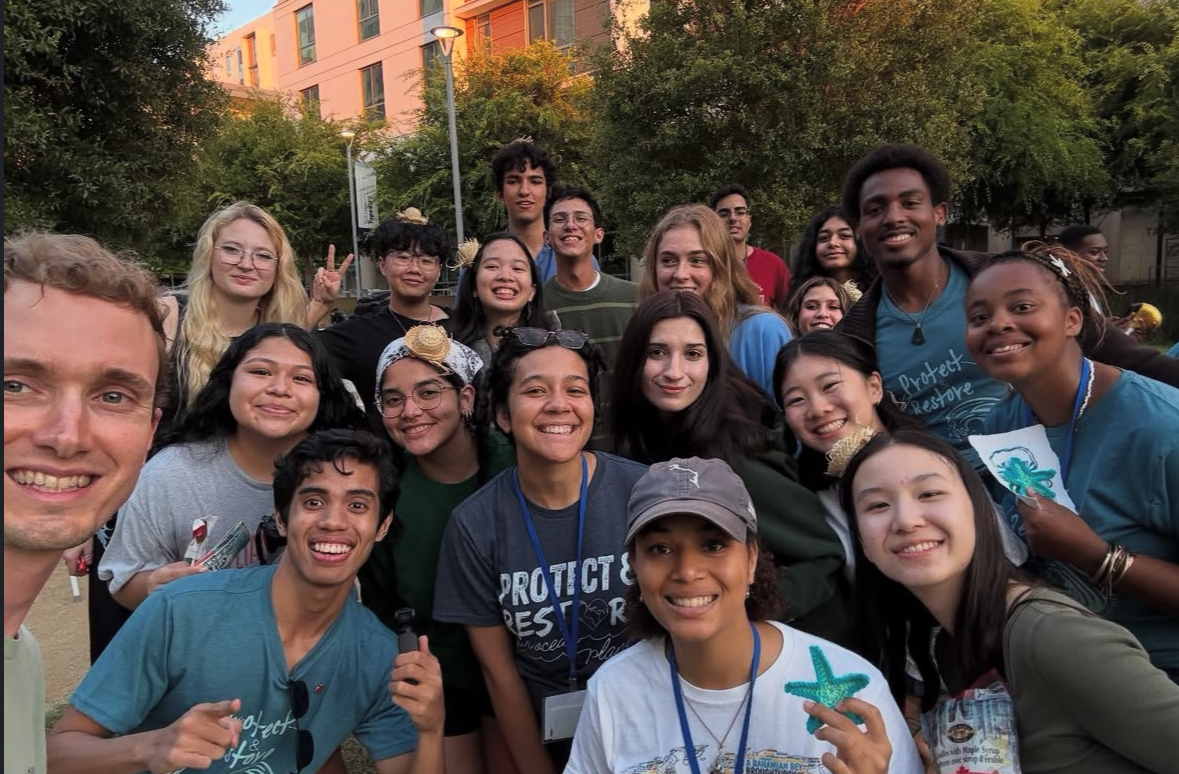Water: Common Ground
We wouldn’t have come this far without rivers. The first great civilizations began on their shores, where water made a settled life possible. From wandering to sowing, from moving to sitting, people finally had time to think and create. Water has always been a turning point for humanity—and it still is.
I was selected as Blue Carbon Ambassador from Puerto Rico without knowing much about it or what it really involved. A few weeks later, EarthEcho gave it a wild spin. After weeks of seminars and long hours in front of a laptop, I finally crossed sea and land to reach California. When I touched ground, I braced myself and said: Now THIS is the exciting part.

But in reality, that wasn’t the best part at all.
At the University of San Diego, we gathered as a group for the first time. Having the real people— whose faces I only saw on screen— was exciting. The spaces were mind-blowing, not because they were big and spacious, but because of the community created. The airy rooms were filled with a welcoming and lively energy. I never felt unfit or overwhelmed during workshops, field days, or other activities. This gave me the chance to share and connect with others in wonderful ways— like a two-hour football game. .
This isn’t that part either.
.jpg)
Amid all those moments of connection, one space in particular kept pulling me in— the communications workshops. The ways we share events, ideas, and projects to people matter in the best way possible. Sometimes it’s not what we share, but how we do it. Not only through long written lab reports, but also through posts on social media, documentaries, films, and any form art can take. On the other hand, the Scripps Institute of Oceanography showed us another side. Its pristine labs reflected the devotion researchers and staff have for their work. The Erlenmeyer flasks and seaweed collection weren’t just tools— they were invitations to share knowledge. Having the chance to step into these spaces showcased the possibilities of what I can do and become, and most importantly my role as a communicator.
Remember the good stuff? That was nothing— it was only the beginning.
.jpg)
We worked on our project with professionals from different backgrounds. Sharing our stories and our visions was uplifting. It wasn’t just about telling— it was about being the living proof of what our coastal communities are. Listening to their life experiences, and words for our projects, was comforting in its own way. Later, we had dinner with the team, and the EarthEcho Board of Directors. And this is where things got WILD. We started sharing stories and experiences around the table— talking about Perú, Alex Morrison and I striking a conversation in Portuguese, our interests, and many more. I can assure you dear reader, the sunset view was almost as good as the conversations and laughter.
Finally, I touched the Pacific Ocean for the first time. We had a picnic and washed our feet on the shore. I would’ve loved to take a dive— that idea lives in the back of my mind. We talked, ran, laughed, found seaweed— which turns out to be unusually exciting—, and danced. And here it was— the moment that gave me the time of my life.

People.
In a second I realized that it wasn’t about the salty air or warm water. Our uniquenesses brought us together in a mysterious, yet simple way. Talking in Portuguese, sharing traveling anecdotes, big thoughts, and eating Filipino plums brought us closer in our humanity. Our different shores somehow found common ground. This gave essence to the retreat in the best way: youth from diverse coastal communities inspiring one another.
We weren’t the people who developed the earliest writing system after settling along two rivers. In fact, we came from very different worlds: Puerto Rican mangroves, New York oyster beds, Canadian kelp forests, Philippine coral reefs, and New Orleans salt marshes. All those connected by one big blue ocean at our shores. Water has been a breaking point for our world in many ways, but now it was my turn. Being a Blue Carbon Ambassador is more than the ecosystems we advocate for, but our beloved ones: our community.
.jpg)
